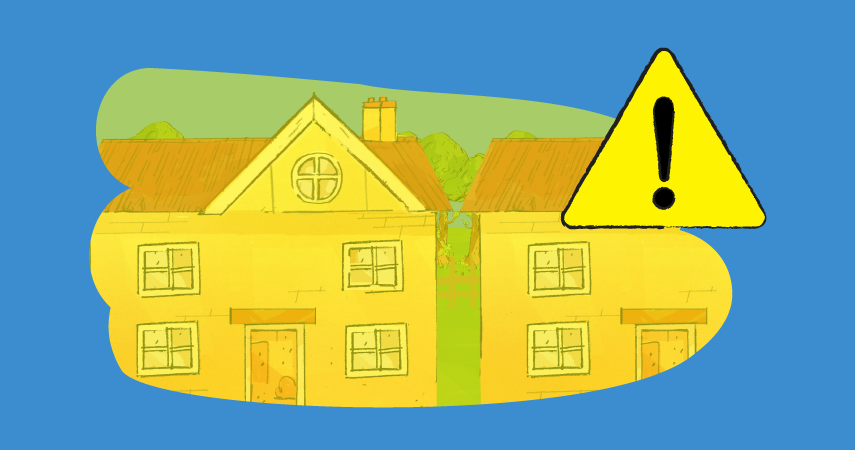Home » Tenant News »
Most bizarre items left by students? How about a pet python and glow-in-the-dark swear words…
This article is an external press release originally published on the Landlord News website, which has now been migrated to the Just Landlords blog.

What’s the most bizarre thing you’ve ever found in your property after a tenant has moved out? Giant glow-in-the-dark swear words, a sex toy, and a pet python are a few reported by The Deposit Protection Service (The DPS).
Part of The DPS’ role is processing landlords’ requests for deductions from their tenants’ deposits, and among the claims it received this year was one to cover the costs of removing a snake found in a student’s bedroom.
The swear words were discovered after a landlord believed their living room to have been left in an acceptable condition, only to find four-foot-high swear words appear on the walls at night.
One landlord had to inform an ex-tenant that they had disposed of a sex toy left behind after the owner had phoned to ask for it back. Another landlord has reported finding an air rifle in a student’s room.
Matt Trevett, Managing Director at The DPS, said: “Like all tenants, students must take care of the place they live in, avoiding or properly repairing any damage and leaving the property as clean as when they arrived.
“Because students are more likely to share their house with others, there can be confusion over who is responsible for checking the condition of their accommodation and reclaiming the deposit when everyone moves out.
“Keeping to the terms of a tenancy agreement and demonstrating that they’ve left the place in good standing is crucial to students receiving their full deposit back.”
Below are 12 tips from The DPS to help students increase their chances of retaining their deposits at the end of a tenancy.
1. Check your landlord protects your deposit with a proper deposit scheme, i.e. one backed by the Government.
2. When you move in, note down any stains, marks or damage and make sure you agree and sign a formal detailed check-in or inventory report that includes date-stamped photographs and accurate descriptions of fixtures, carpets, and appliances. Arguing that the massive iron burn on your bedroom carpet was already there when you moved in, but you didn’t notice it, just won’t fly. MAKE SURE EVERY HOUSEMATE SEES THE REPORT AND HAS A COPY.
3. If the landlord is unknown to you, make sure you check their name against your university or student union’s list of approved landlords.
4. Don’t throw your tenancy agreement into a dark corner and retrieve it, mouldy and dog-eared, just before you jet off to Ibiza/Magaluf/Scarborough to celebrate getting through uni. Read it and understand your rights and obligations, then file it safely.
5. Record all communication with your landlord in writing, especially anything you agree with them after you move in. Take screenshots of text message exchanges with your landlord because they record dates and even times and will help you if there is a dispute.
6. File copies of all documents, receipts and emails relating to your tenancy. You will be grateful for your awesome levels of organisation when you prepare to leave your accommodation.
7. If any defects or issues arise, whip out your phone and report them immediately to the landlord (backed by an email). Don’t put it off. Your landlord won’t mind hearing that ‘a pipe is leaking’ nearly as much as ‘the kitchen has been flooded for a couple of days now’.
8. If you take photos of damage or problems that occur in the property while you are there make sure they are date stamped.
9. Remember the legal phrase ‘joint and several’. If one housemate does not ‘fess up’ when something goes wrong, such as a breakage, it becomes the joint responsibility of all tenants. Encourage all housemates to report their (property-related) mishaps.
10. Even if you keep your own room in a state of pristine perfection, most tenancy agreements stipulate that tenants are also liable for damage to communal areas (n.b. this is a subject to raise at the start of the year and not in a heated discussion on the appalling state of the kitchen during exams).
11. Try not to fall out spectacularly with your housemates and move elsewhere. You could still remain jointly responsible for the property, because liability generally extends right to the end of the tenancy.
12. Make sure you attend the checkout inspection at the end of the tenancy and sign the agreed documentation. (You can take your own photographs, by the way).




